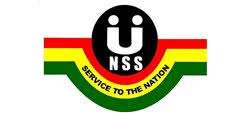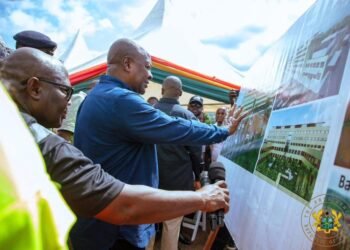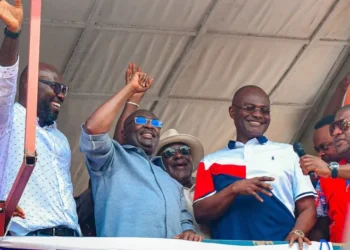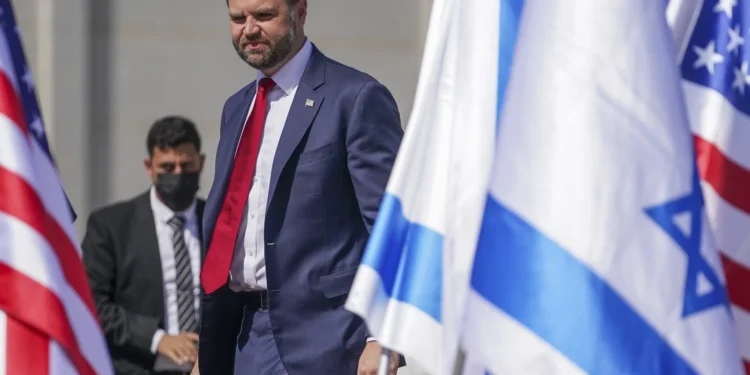In the wake of recent allegations concerning the presence of over 81,000 ‘ghost names’ within Ghana’s National Service Scheme (NSS), former Deputy Executive Director Henry Nana Boakye, has vehemently refuted the claims and vowed legal action.
Nana Boakye criticized the investigative report, labeling it as “reckless” and “sensationalist,” and announced his intention to pursue legal action for defamation.
“Ask them whether they went to check whether all of these people they are displaying around were paid. The payment is not as easy as they think”
Henry Nana Boakye, NSS former Deputy Executive Director
The controversy erupted following a report by the new management of the NSS that uncovered more than 81,000 suspected ghost names on the NSS payroll.
This discovery emerged from a headcount exercise aimed at addressing arrears in allowance payments within the agency, which oversees mandatory year-long employment placements for graduates.
The report suggested that these fictitious entries had led to significant financial losses for the state under the former government’s tenure.
Felix Gyamfi, the Director General of the National Service Authority (NSA) described this discovery as a failure by the leadership of the authority.
“This was a leadership problem. This was a situation where the checks that were put in place to safeguard taxpayers’ money were supposed to have kicked in and they didn’t kick in”
Felix Gyamfi, the Director General of the National Service Authority (NSA)
Addressing the allegations, Nana Boakye, who served at the NSS from February 2017 to September 2018, expressed profound dissatisfaction with the investigative methods employed and the conclusions drawn.
He emphasized the robustness of the NSS payment system, which operates through the Ghana Integrated Financial Management Information System (GIFMIS).
A system which mandates biometric verification, and ensures that only authenticated personnel receive payments.
“Our payment is done through GIFMIS. If you are not biometrically verified, you cannot be paid,” Nana Boakye stated, and challenged the credibility of the report, questioning how unverified names could have resulted in financial disbursements.
“If you tell me that a Kenyan entered the system, now tell me whether that Kenyan was paid” he added, highlighting the improbability of unauthorized individuals receiving funds.
Critique of Investigative Approach
Nana Boakye expressed frustration over the lack of due diligence by the investigative team, noting that neither he nor the former Executive Director, Mustapha Ussif, were consulted during the investigation.
“For me, I was never called. Mr. Ussif was never called. He was Executive Director for four years. They never reached out to him”
Henry Nana Boakye, NSS former Deputy Executive Director
He argued that the absence of input from key officials undermined the report’s credibility.
Furthermore, Nana Boakye criticized the methodology of the report, suggesting that the investigators focused solely on data entry points without verifying whether the alleged ghost names resulted in actual payments.
He contended that the payment process is more stringent than portrayed, making unauthorized disbursements unlikely.
“So all they did was that they went to the entry point, where all manner of fake information is and then they created a whole sensation about it”
Henry Nana Boakye, NSS former Deputy Executive Director

Legal Action
In response to the allegations, Nana Boakye announced his intention to sue the investigative body for defamation, citing the damage to his reputation and the unwarranted panic caused among the public.
“For me, trust me, I will take them on. I will take it because they displayed my picture,” he asserted.
He also called for greater responsibility among journalists and investigators, emphasizing the need for thorough verification before publication.
“Sometimes in our laws, if we are journalists and you want to do an investigation… you must reach out to the people involved,” Nana B advised, highlighting the importance of balanced reporting.
President John Dramani Mahama has ordered a comprehensive investigation by the National Investigations Bureau (NIB), into the operations of the NSS following the 81,000 ghost name reveal.
The President’s directive aims to ascertain the veracity of the claims and to implement measures to prevent potential payroll fraud in his administration.
This initiative aligns with the government’s broader commitment to eradicating corruption and ensuring transparency within public institutions in the country.
The NSS plays a pivotal role in Ghana’s development by facilitating the transition of graduates into the workforce through mandatory service. Allegations of payroll fraud not only tarnish the institution’s reputation but also raise concerns about the efficient utilization of public funds.
As the investigation unfolds, stakeholders and the public await concrete findings that will either substantiate or refute the claims.
It is worthy of note that the NSA, under its previous management, refuted claims of the existence of ghost names in its system as “baseless and unfounded”. The Fourth Estate made the fraudulent accusation of inflated allowances in an investigative report in 2024.
The ongoing NSS ghost names saga underscores the critical need for meticulous investigative journalism and the imperative of safeguarding institutional integrity.
As Nana Boakye prepares to challenge the allegations legally, the outcome of this dispute and the investigations by the NIB, will have significant ramifications for media practices, public trust, and the NSS’s operational transparency in Ghana.
READ MORE: Hamas To Release Bodies Of Four Hostages On Thursday























